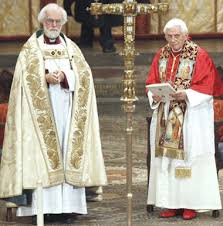IndigoChild5559
Loving God and my neighbor as myself.
When did Jesus ever tell his followers to overthrow the Romans?Just to let you know. The expression "old testament" is insulting to Jews
Brother J's ideology was more in line with the Zealots
Welcome to Religious Forums, a friendly forum to discuss all religions in a friendly surrounding.
Your voice is missing! You will need to register to get access to the following site features:We hope to see you as a part of our community soon!
When did Jesus ever tell his followers to overthrow the Romans?Just to let you know. The expression "old testament" is insulting to Jews
Brother J's ideology was more in line with the Zealots
Yes, Jesus preached Judaism. The messianic sect preached by the apostles was originally a Jewish sect. But it became most Gentile due to Paul's missionary activities, and because of its heresies it got kicked out of the synagogues, becoming its own religion, Christianity. The Jewish believers in Jerusalem further refused to fight alongside their Jewish brethren in the Jewish-Roman war, killing forever all hope of Jewish believers being considered part of Judaism.Did he tell them to wait until the passion was fulfilled. And wouldn't his message be to become Jewish since that was his religion? Your are quoting Isaiah not Jesus. Did Jesus say that he would be the light to the Gentiles. You need to be careful mixing passages.
Sorry it was a poor attempt to remember that all of the words Jesus said were not written at the time. The new testament gospels were written years after the words were said which means they are not likely to be as accurate as they assumed by modern Christians. The four accepted gospels also were written by different views for probably different developing sects of the religion. Thus they may have the intent of what Jesus said but to accept them as absolute literal events is unlikely.
When did Jesus ever tell his followers to overthrow the Romans?
Yes, Jesus preached Judaism. The messianic sect preached by the apostles was originally a Jewish sect. But it became most Gentile due to Paul's missionary activities, and because of its heresies it got kicked out of the synagogues, becoming its own religion, Christianity. The Jewish believers in Jerusalem further refused to fight alongside their Jewish brethren in the Jewish-Roman war, killing forever all hope of Jewish believers being considered part of Judaism.
FYI, Jesus never said he was a light to the Gentiles. That was a prophecy by Simeon when baby Jesus was taken to the Temple. It is also a statement by God about Israel (not the messiah). Jesus never ever preached to Gentiles.
Thank you I completely agree with you.The accepted gospels were written or finally edited between 70CE and 100CE. That's at least 2 generations after the death of brother J. The overriding problem is the copying. These documents had to be copied by hand and sent out to other people to recopy. Scribal errors were bound to happen over 300 years. So we really don't know what the original documents said or what brother J actually said. A lot of his teachings such as the Sermon on the Mount are probably more or less accurate
When we compare the DSS Isaiah to the Masoretic Isaiah, there are almost no scribal differences. I think we need to take into consideration just how slowly and carefully scribes will copy when they consider a text sacred.The accepted gospels were written or finally edited between 70CE and 100CE. That's at least 2 generations after the death of brother J. The overriding problem is the copying. These documents had to be copied by hand and sent out to other people to recopy. Scribal errors were bound to happen over 300 years. So we really don't know what the original documents said or what brother J actually said. A lot of his teachings such as the Sermon on the Mount are probably more or less accurate
KingSolomon, it's good to see you here in this forum. I always enjoy your posts.We don't know because all of his militant statements have been deleted from his story. But if we want to get an idea of what he stood for, we should look at James, his brother. James seems to be have been allied with the zealot movement
While you are roughly right, it is still true that James and Paul considered each other allies in the spread of belief inn the messiah, at least this is so if you accept the book of Acts as historical.Paul created a new religion which had nothing to do with James' Nazarene sect. James' sect was Jewish. Paul's religion was gentile.
When we compare the DSS Isaiah to the Masoretic Isaiah, there are almost no scribal differences. I think we need to take into consideration just how slowly and carefully scribes will copy when they consider a text sacred.
Furthermore, there is no instruction by either Jesus or the apostles to militantly rebel against Rome. In fact, Paul taught his followers to obey the rulers, because God had placed them in authority. Jesus famously told his followers to pay their taxes.
When we compare the DSS Isaiah to the Masoretic Isaiah, there are almost no scribal differences. I think we need to take into consideration just how slowly and carefully scribes will copy when they consider a text sacred.
I have studied all the world religions (except Bahai, Jainism, Sikhism, and a few others. I've read all the the major sacred texts except the Vedas and Upanishads (they are next on my list). So of course I've studied Christianity.I am curious IndigoChild....you post like a Christian (and you do it well) but you identify as a Jew.....can I ask why?
I have studied all the world religions (except Bahai, Jainism, Sikhism, and a few others. I've read all the the major sacred texts except the Vedas and Upanishads (they are next on my list). So of course I've studied Christianity.
I would say that I've given special attention to Christianity--I live in a Christian culture. Jews have a 2000 year history of interaction with Christians (most of it hostility on their part). For these reasons, it is especially important for me to understand.
I have taken special care to study:
1. How Christianity moved from being a Jewish sect to a Gentile religion
2. How Christianity came to believe that Jesus is God himself (which led to the charge of deicide against the Jews)
3. Supersessionism (how the church replaces Israel, and how this is the root of Christian anti-Semitism)
4. St. Chrysostom and Martin Luther as the two greatest anti-Semites in church history
5. The modern phenomenon of Christian repudiation of Supersessionism and embrasure of Israel as still being God's covenant people, and further repudiation of historical Christian anti-Semitism.
When I discuss things with people, I try to reach them at their own level of understanding. An Evangelical cannot relate to mere reasoning or words from the Talmud. Therefore I am careful to use verses from the texts that THEY accept as authoritative.
Certainly I am not a Christian--not even close. I do not accept Jesus as the messiah and God is absolutely not a man. For me, the Christian scriptures have zero authority, although you'll find in it good old fashioned Judaism, especially the gospels and the book of James (in addition to Christian teachings of course). I see Jesus as a Torah scholar of the school of bet Hillel, who mistakenly came to believe he was the messiah--this was an error common for the times. Jesus simply did not do the things the messiah is supposed to do.
I have studied all the world religions (except Bahai, Jainism, Sikhism, and a few others. I've read all the the major sacred texts except the Vedas and Upanishads (they are next on my list). So of course I've studied Christianity.
I would say that I've given special attention to Christianity--I live in a Christian culture. Jews have a 2000 year history of interaction with Christians (most of it hostility on their part). For these reasons, it is especially important for me to understand.
1. How Christianity moved from being a Jewish sect to a Gentile religion
2. How Christianity came to believe that Jesus is God himself (which led to the charge of deicide against the Jews)
3. Supersessionism (how the church replaces Israel, and how this is the root of Christian anti-Semitism)
4. St. Chrysostom and Martin Luther as the two greatest anti-Semites in church history
5. The modern phenomenon of Christian repudiation of Supersessionism and embrasure of Israel as still being God's covenant people, and further repudiation of historical Christian anti-Semitism.
When I discuss things with people, I try to reach them at their own level of understanding. An Evangelical cannot relate to mere reasoning or words from the Talmud. Therefore I am careful to use verses from the texts that THEY accept as authoritative.
Certainly I am not a Christian--not even close. I do not accept Jesus as the messiah and God is absolutely not a man.
For me, the Christian scriptures have zero authority, although you'll find in it good old fashioned Judaism, especially the gospels and the book of James (in addition to Christian teachings of course).
I see Jesus as a Torah scholar of the school of bet Hillel, who mistakenly came to believe he was the messiah--this was an error common for the times. Jesus simply did not do the things the messiah is supposed to do.
No, I don't think Paul set about to establish a new religion, although ultimately his conversion of the Gentiles en masse did exactly that.I agree with you that Jesus a Jewish scholar believing in the Jewish faith. Do you think that Paul intended the changes the occurred creating the division of the developing Christian religion from its Jewish origins?
I am wondering what people assume "Christian culture" to be? Because Jesus was Jewish, it helps everyone to understand the culture he came from. To me the Hebrew scriptures are as important as the Greek scriptures. I see true Christianity to be what a Jew taught about the God they had in common. Did Jesus teach anything contrary to the Torah?
What I don't see in the Hebrew scriptures is the Jewish nation living up to their covenant arrangement with God. Do you?
It was Jewish at its roots because all the first Christians were Jews. Every writer of the NT was Jewish. No Gentile wrote a word of it. But true to his promise to Abraham, "all the nations" were going to benefit from the one who would come through Abraham's seed. (Genesis 22:17-18) That didn't make Christianity a Gentile religion IMV, but taught Gentiles how to worship the true God by obeying him.
Why do you think the Gentiles did a bad job of that? Gentiles could become Jewish proselytes and worship Israel's God...what is the difference?
The prophecy in Jeremiah about the New Covenant describes the Messianic age. There are criteria that have not come true yet. For example, laws have not yet been written on or hearts -- we have to be taught them. And it says that everyone, EVERYONE, will know God. That's not true yet -- there are still atheists and agnostics. Jesus did not fulfill this prophecy. It will be fulfilled during the messianic age.It was Jeremiah who foretold that a new covenant would replace the old one. (Jeremiah 31:30-32)
Yirmiyahu - Jeremiah - Chapter 31
So when Jesus came, he instituted this new covenant with those of his nation who accepted him as Messiah. The Jews who were influenced by the religious leaders of the day, rejected his claim of being Messiah because they said he did not fit the criteria. But if you examine the evidence, no one has ever fulfilled it more accurately.
Oh, I wasn't referring to the State of Israel, but rather the People of Israel. I almost never refer to the Nation State unless it's clear from the discussion that that's what we are talking about.I am never quite sure of some people's leanings with regard to Israel.
I know from the scriptures that Jesus fulfilled the role of the Messiah...Unfortunately, Israel could never live up to their end of the covenant and because it was conditional, that left God with nowhere to go when they rejected his Christ, but to choose people from the nations to make up "the kingdom of priests and a holy nation" that had been promised. The Jews did not just reject Jesus as Messiah, but had orchestrated his death. That is pretty serious.
The Tanakh makes perfect sense on its own. It has survived just fine without the Christian scriptures for thousands of years.To me the entire Bible is the word of God. Both portions are the continuation of one story....from Genesis to Revelation. One makes no sense without the other.
Christian culture is different in different in different times and places. The culture among the first Christians was very different than under Constantine which was very different than during the Crusades, which was very different than during the years of the Christian wars in the 16th and 17th centuries...Evangelical culture is very different from Catholic culture which is very different from Orthodox culture... Christians in the US have a very different culture from Christians in Africa or Korea.

It does no good to say that only the Apostolic church was truly Christian and everything after that is apostate. The common usage of the word Christian is anyone who accepts Jesus as messiah and God and is baptized... the typical "orthodox" beliefs of the last two millennia such as the virgin birth, bodily resurrection, atonement, incarnation, etc. It is those who do not believe in the Trinity that are considered heterodox. You may personally believe that Jesus is not God. I would agree with you. But that just means we are both not Christians.
Israel (and I am referring to us, the People of Israel, not the State of Israel) had times when it was faithful and times when it was unfaithful. We had good kings and bad kings. Our relationship with Hashem in those days was largely cyclical, especially in terms of idolatry.
The Babylonian exile finally wiped idolatry from our system. You simply never hear of Jews worshiping any idols after that, not during the reign of the Greeks, nor the Romans, and not bending to worship the man Jesus during the time of the Christians.
Yes, all the first believers in Jesus were Jews, and they continued practicing Judaism. They simply added their belief that Jesus was the messiah, that he would come again, that he physically rose from the dead, and their practices of immersion at repentance and the Lord's Supper (apparently on the first day, which writings outside the Christians Scriptures call the Lord's Day), and they ordained elders in a manner similar to the ordination of rabbis (laying on of hands). That's really very, very little addition. They were basically a Jewish sect, not a new religion.
But a QUESTION arose when GENTILES began to believe.
First, some important background information.
The Pharisees were great missionaries, going first to Jews in the diaspora, but also spreading ethical monotheism. Sometimes they would encounter Gentiles that were truly interested in following the God of Abraham. In such a case there were two options.
One was that the Gentile could get circumcised come under the 613 laws of the covenant -- in other words become a Jew. At one point in history, somewhere around 10% of the Roman Empire was Jewish.
However, this was not necessary. One can be a righteous Gentile and it is perfectly acceptable to God, and sheesh it's a lot easier than keeping 613 laws. Such a person could simply believe in the God of Abraham, act decently (obey what we call the laws of Noah), and attend the synagogue for worship and basic religious instruction. These righteous Gentiles were sometimes called God Fearers. Cornelius in the book of Acts was one, and you'll remember that God said he already knew him.
So getting back to Christians missionaries, some of them (including some Christian Pharisees) were circumcising the new believers and making them Jews, and others such as Paul were making them God Fearers.
To resolve the conflict, the Council of Jerusalem was called, and it was ruled that Gentile believers would be left as God Fearers. There is NOTHING in this council that says Jewish believers were to give up Moses and the Torah. So basically from the council on, the church during the time of the apostles had a bilateral approach: Jewish believers kept the 613 laws of the Torah, and Gentile believer did not, but followed basic moral laws as God fearers.
At first Gentiles did nothing wrong. They accepted the bilateral approach, and the Jerusalem church as the hub of the believer's world.
2. How Christianity came to believe that Jesus is God himself (which led to the charge of deicide against the Jews)
It's not my job to defend Catholicism -- there are Catholics in here to do that. But I would like to point out that the reason Jesus didn't wear distinctive dress was that he was not a Kohen (priest descended from Aaron).It occurs to me that "Christianity" was more influenced by Christendom than Jesus Christ. The culture created by Roman Catholicism is vastly different to anything Jesus taught.
e.g. there was no earthly priesthood in first century Christianity.... all mention of a priesthood for Christians was in heaven in the future. (Revelation 20:6)
Nor were there grand edifices adorned with idolatrous symbols....and men or women in distinctive clothing.



That was a hark back to a system that had, according to my beliefs, been superseded by the implementation of the "new covenant". Most "Christian" churches have some form of identifying garments....many of which are more elaborate than any Jewish High Priest would have worn.

Jesus did not need to identify himself with distinctive clothing....he blended in with the common people to whom he was sent.
I'm not here to convert you away from your JW beliefs. It seems to me that you worship God and live a righteous life and that's what it's all about. But I'll comment on what you say. Your belief in a giant apostacy is esoteric to followers of Jesus, as is your belief in soul sleep.Jesus indicated that an apostasy was to take place in the Christian church "while men were sleeping", which we believe was when the apostles had passed away. As you know, the ancient Jews did not have belief in an afterlife that involved the existence of an immaterial part of man that departed from the body at death. (Ecclesiastes 9:5; 10) So "sleeping in death" (in an unconscious state) was an original Jewish belief that apparently got lost and was replaced by the Platonic belief in an immortal soul. (Such was the religious influence of Greece) All faiths sown or corrupted by the devil will exhibit this belief as a continuation of the first lie told in Eden..."You surely will not die". God said they would...so who lied?
Jesus reference to Jerusalem killing the prophets is hyperbole. Jezebel killed the prophets in her court. That is the only instance.Do you have any response to Jesus' words at Matthew 23:37-39 regarding the record that that the leaders of his faith had managed to accrue up until the first century? How many of the ancient prophets suffered at their hands? How often did God have to bring them to their knees before they would repent? How was this lining up to their declaration at Mt Sinai? (Exodus 24:3)
What???? God gave Israel the choice whether to have a King or not. It was because Israel chose a King that a Messiah is possible, since the Messiah is the King who reigns during the messianic era.When Israel demanded a human king to rule over them like the nations had....didn't God warn them about what it would mean to have human kings and the things that they would have to do to maintain them? They didn't listen. Often bad kings led the whole nation astray, forcing God to punish them all.
Wow, if I believed such disinformation and distortions, I'd have a bad feeling about Judaism too. Fortunately I the accurate facts.They were told that the covenants he made with them were conditional, and yet the conditions were rarely met. Israel's good times were overshadowed by the bad ones...mostly due to their own choices. The state of Judaism by the time of John the Baptist and Jesus was a distorted shadow of what God had instituted with his ancient people at Mt Sinai.
Again an esoteric interpretation.I agree, but it didn't stop there. The "Lord's Day" spoken about by John in Revelation had nothing to do with a day of the week.
So nice to agree on something, eh?Yes, that is how I understand it. The Law was for Jews and Gentiles were not under any obligation to keep the law, including the Sabbath because they were not converting to Judaism. The Law only meant something to Jews and those who wanted to attach themselves to the Jewish nation. Gentiles had no covenant with God....but they still had to obey all the moral laws as Jesus said. They also had to "abstain from blood". (Acts 15:28-29) Love of God and neighbor had to be demonstrated as a way of life.
